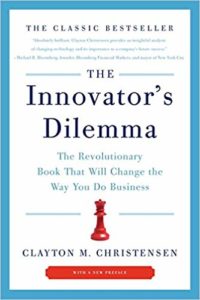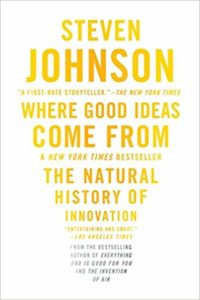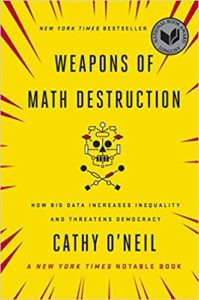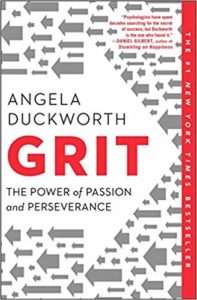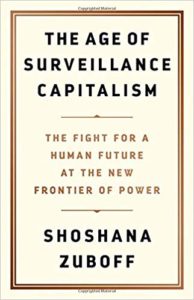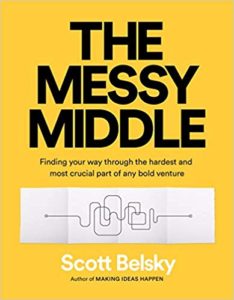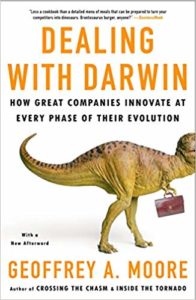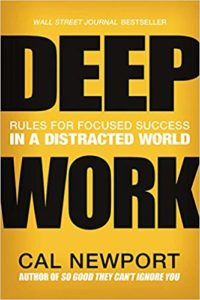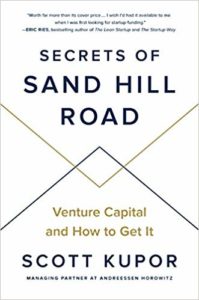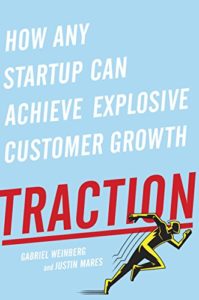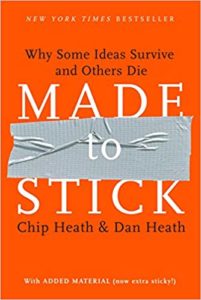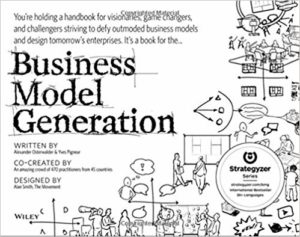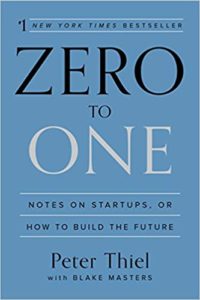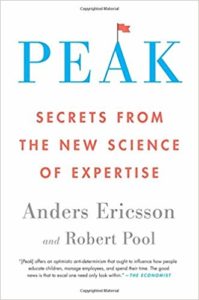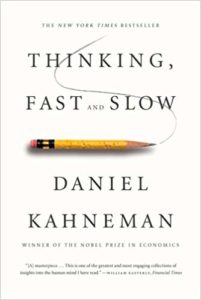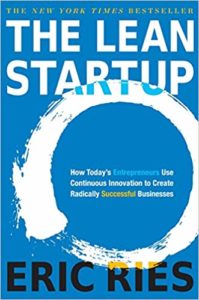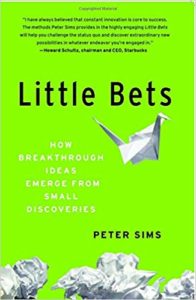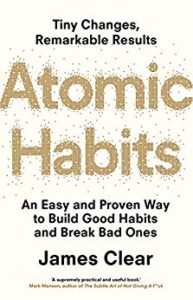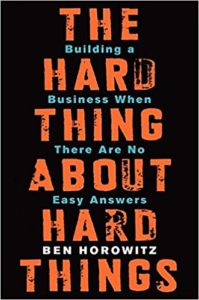Inspiring Innovation: 2019 Summer Reads
The faculty, staff, and mentorship network at the Sutardja Center for Entrepreneurship and Technology have compiled a list of fascinating and applicable summer reads for any innovator or entrepreneur.
(Looking for more summer reading? Check out the Berkeley Summer Reading.)
By Clayton M. Christensen
In his classic book, Harvard professor Clayton Christensen says outstanding companies can take all the right steps and still lose market leadership or disappear completely. He claims that a successful company will fail to meet its potential unless managers and leaders know when to abandon standard business practices. The Innovators Dilemma is a must-read for any business professional.
By Steven Johnson
When picturing how ideas are made, one may imagine a secluded genius that receives a world-changing idea in a flash of inspiration. Johnson presents a very different view about how ideas are made in this popular book. For Johnson, most ground-breaking ideas come about as “slow hunches” that slowly develop with an innovator over time. This book examines the approaches and similarities that appear at moments of innovation and originality, and provides a compact survey of elements that foster innovation.
“A look back at great ideas and innovations of our time and how they came about,” — David Law, SCET director of global academic & startup programs
By Cathy O'Neil
O’Neil’s book, a New York Times bestseller and National Book Award nominee, warns against common algorithms that are “opaque, unregulated, and incontestable.” O’Neil explains the “dark side of big data” as models and algorithms that perpetuate discrimination. Following the track of a person’s life, O’Neil explains the “weapons of math destruction” that can determine personal and professional outcomes. As innovators navigate the increasingly complex ethical issues around creating technology startups, O’Neil’s account shows the power of algorithms and big data and responsibility that comes with designing them.
By Angela Duckworth
Duckworth argues that mastery in most domains can be learned, regardless of IQ or circumstances. She applies grit to a variety of human experiences — both personal and professional. Grit has been explained as “personal,” “insightful,” and “life-changing.” Grit is a book about how the role that effort and commitment — not talent or luck — play in determining success.
By Shoshana Zuboff
Zuboff's book is the first major examination of “surveillance capitalism,” which characterizes how companies today compile data to predict and control behavior. Zuboff connects concepts of surveillance capitalism in Silicon Valley to every economic sector. The author asserts that without major societal intervention, surveillance capitalism will dominate our social order and mold the digital future.
“This book insightfully discusses the evolving business model behind the newest generation of startups and tech companies. If you are going to be working in technology, this is fundamental reading to understand the coming shifts in technology.” - Stephen Torres, SCET industry fellow and lecturer
By Scott Belsky
Scott Belsky, the chief product officer at Adobe, has written a useful guide to navigating ventures and creating bold projects. Belsky claims that the middle stretch — after the exciting beginning and before letting go — is misunderstood. With Belsky’s guide, the reader will learn how to endure the “messy middle” and optimize opportunities along the journey.
“It lays out a framework and does a really good job at recognizing and addressing the issues associated with crossing the chasm.” - Rick Rasmussen, SCET industry fellow and startup program director
By Geoffrey A. Moore
Moore claims that as competitive advantage gaps become more narrow, products invented today will likely be copied by someone else for “better and cheaper.” Many companies thrive in their beginnings, only to fall slack during periods of inertia and die out while others surge ahead. But as Geoffrey Moore shows, some notable companies have figured out how to evolve in their mature years—making changes on the fly while fending off challenges from every quarter.
By Cal Newport
In Deep Work, author and Georgetown professor Cal Newport, analyzes the power of deep focus. Newport argues that a deep work ethic has been instrumental for many successful people in the past and will have huge benefits for any person or profession in any field. His book gives four main rules for shifting your habits to support a deep focus.
“Entrepreneurs work nonstop. But more time spent does not always mean more work gets done if half the day is spent on “distracted tasks” like email and updating Twitter. In Deep Work, Newport makes a convincing case that to produce high quality work in a reasonable amount of time requires long, focused, concentration sessions, which are becoming increasingly hard to come by in our distracted world.” — Keith McAleer, SCET chief marketing officer
By Scott Kupor
Scott Kupor, a managing partner of venture capital firm Andreessen Horowitz, gives an insider’s perspective on how to get a company started or level up to a larger scale. The book describes how venture capitalists decide exactly how much to invest. Kupor guides his reader on how to develop relationships with VCs and make the most of those relationships.
“A great introduction about Venture Capital and what they're looking to find in your company.” - Rick Rasmussen, SCET industry fellow and startup program director
By Gabriel Weinberg and Justin Mares
Weinberg and Mares argue that any successful startup needs traction. With traction comes fundraising, hiring, press, partnerships, and acquisitions. The authors believe that the key to success is how you develop traction and utilize it once you’ve got it. Traction presents the nineteen channels to build a customer base, and how to pick the right ones for your business. Through interviews with industry founders, readers will gain valuable insight and tips for gaining and leveraging traction.
“This is an exceptional book which details all 19 methods for scaling a venture. It also describes the 'Bullseye' system the authors have used to methodically derive which of the 19 methods suit a specific startup or industry. Authors are the founders of Google rival DuckDuckGo and book is now taught as part of Techstars syllabus.” - Mike Kyriacou, SCET mentor
By Chip Heath and Dan Heath
In Made to Stick, Chip and Dan Heath explore the makeup of ideas that “stick” and explain ways to make ideas stick stronger. The authors apply the human scale principle and the Velcro Theory of Memory to ideas both “sticky” and not. Through engaging examples — success stories and failures — he draws from six traits.
By Alexander Osterwalder and Yves Pigneur
A handbook to guide budding entrepreneurs and game changers who need to make a strategy and plan to outdo their competitors. The authors describes traditional business patterns and helps readers transform them to fit their company. Business Model Generation features practical innovation tools used at leading companies worldwide.
By Peter Thiel
In this must-read for innovators, Thiel begins with a “contrarian premise” that we live in an age of technological stagnation, even though we might not realize it. Thiel asserts that information technology has improved rapidly, but progress shouldn’t be limited to Silicon Valley. Thiel inspires his readers to believe that progress can be achieved in any industry or area of business. It learning to think for oneself, which he teaches in his book.
By Anders Ericsson and Robert Pool
Anders Ericsson, a performance research expert, presents a new approach to learning that prompts the reader to think differently about acquiring a skill. Ericsson's findings have been thoroughly debated but never properly explained until now. We believe we need innate talent to excel or think excelling seems prohibitively difficult, but Ericsson argues against this concept to inspire skill acquisition regardless of natural talent.
“Malcolm Gladwell popularized the idea that spending 10,000 hours learning a skill is about the time it takes to become a master. Ericsson, whose research this claim is partly based on, goes into more detail about how this actually works, and introduces the idea of deliberate practice, or his methodology for how anyone can improve at any skill, regardless of their innate talent. In his view, most people can become very skilled in almost any area, provided they practice in the right way. Entrepreneurs are life-long learners and skill-builders, and this book shows the exact way skills can be built in any area.” — Keith McAleer, SCET chief marketing officer
By Daniel Kahneman
Nobel Prize in Economics winner Daniel Kahneman explains the two ways we think. System 1 is fast, intuitive, and emotional; System 2 is slower, more deliberative, and more logical. Kahneman applies cognitive bias to business practices, happiness, the stock market, and more. Thinking, Fast and Slow is a New York Times bestseller, winner of the National Academy of Sciences Best Book Award in 2012, selected by the New York Times Book Review as one of the ten best books of 2011, and one of The Economist's 2011 Books of the Year.
“A large part of economic and social science theory is based on the assumption that people make decisions as rational, self-interested actors. In this impactful book, Kahneman shows that people are not innately good statisticians, and that we make irrational decisions all the time, mostly due to mistakes made because of the shortcuts or "heuristics" our (automatic) System 1 uses to make decisions. This is essential reading for any entrepreneur and product designers, to understand how cognitive biases affect how people make decisions in everyday life.” — Keith McAleer, SCET chief marketing officer
By Eric Ries
The Lean Startup approach helps companies leverage human creativity more effectively and efficiently. Ries was inspired by lessons from lean manufacturing, and in this book he explores rapid scientific experimentation, as well as a number of non-traditional practices that shorten product development cycles. The Lean Startup offers entrepreneurs - in companies of all sizes - a way to test their vision continuously, without lengthy business plans. Ries provides a scientific approach to creating and managing successful startups in a age when companies need to innovate more than ever.
By Peter Sims
Bestselling author Peter Sims advocates for a “methodical series of little bets,” when starting a project or company. Little Bets is about learning critical information from lots of little failures and from small but significant wins. Sims compares success features of Apple CEO Steve Jobs, comedian Chris Rock, prize-winning architect Frank Gehry, and the story developers at Pixar to illustrate the power of little bets. Sims offers engaging and illuminating accounts of innovators at work, and a whole new way of thinking about innovation and ideas.
By James Clear
James Clear, a New York Times best-selling author, asserts that minuscule changes can grow into such life-altering outcomes. He uncovers a handful of "simple life hacks" (the forgotten art of Habit Stacking, the unexpected power of the Two Minute Rule, or the trick to entering the Goldilocks Zone), and delves into neuroscience and psychology to explain why the little things really do matter. Atomic Habits includes inspiring stories of Olympic medalists, CEOs, and scientists who have used the science of tiny habits to stay productive, motivated, and happy.
By Ben Horowitz
Ben Horowitz, cofounder of Andreessen Horowitz and one of Silicon Valley's most respected and experienced entrepreneurs, compiled necessary advice on building and running a startup. His book includes practical wisdom for managing problems that aren't discussed in classrooms.
Horowitz analyzes the problems that confront leaders every day, sharing the insights he’s gained developing, managing, selling, buying, investing in, and supervising technology companies. For added flare, he amplifies business lessons with lyrics from his favorite songs, telling it straight about everything from firing friends to poaching competitors, cultivating and sustaining a CEO mentality to knowing the right time to cash in.

